Why Saas Companies Should Give Prospects a Self-Service Option
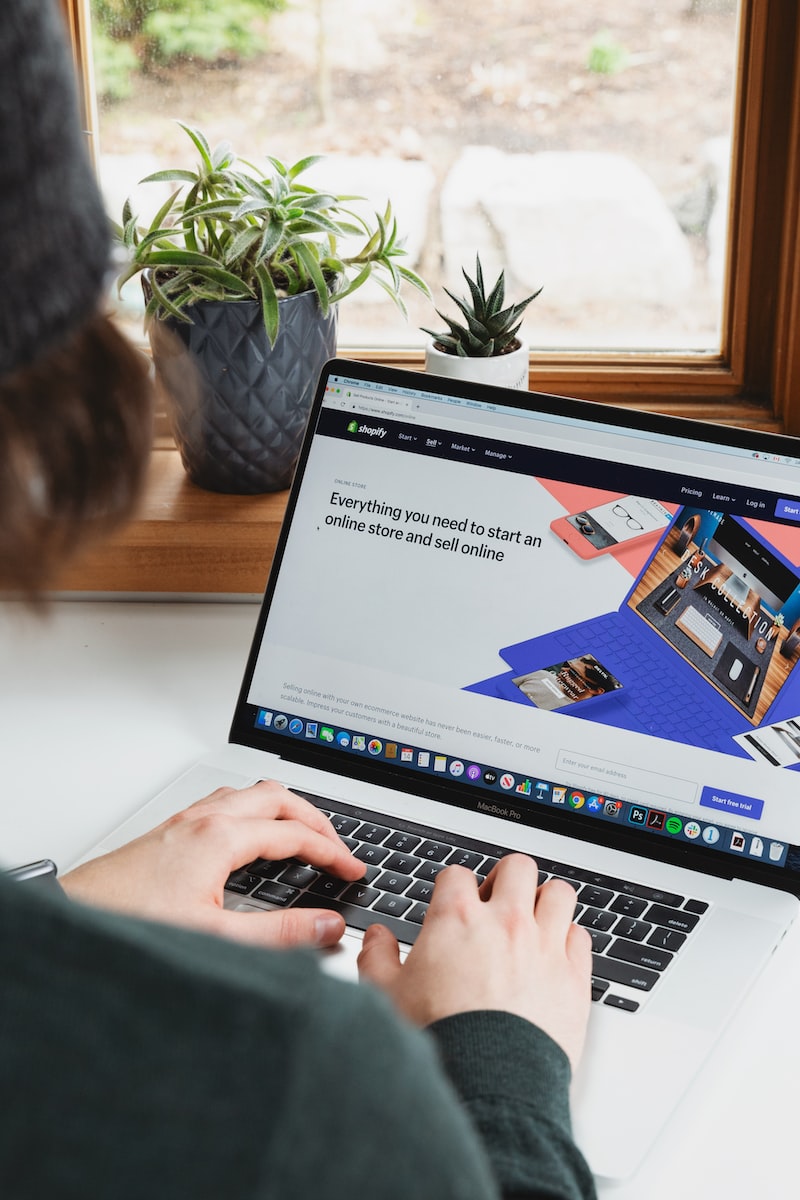
According to a LinkedIn Business article on the current state of sales in 2022, 73% of B2B executives agree that customers expect more personalization than they did a few years ago. More and more, customers are anticipating companies to engage them in sales processes by giving them personalized interactions and self-service options.
This ballooning interest means that in order to maintain engagement and satisfaction, utilizing a B2B sales strategy that provides SaaS self-service platforms and personalization is essential to creating an engaging customer experience.
Especially in this very digital world where it is increasingly difficult to stand apart from the crowd, enterprise sales cycles that don’t prioritize contextual engagement are like sailboats without sails: dysfunctional.
As defined by an article from Industry Wierd, successful contextual engagement involves identifying and offering customers exactly what they want and when they want it. This includes personalization and self-service.
The ugly truth is that only around one-third of companies actually have self-service options for their customers and prospects. That means that more than 65% of all companies are missing out on implementing an incredible selling strategy as a result.
Throughout this post, we’ll share what effective personalization and self-service look like in faction. We’ll also dig into how it can help boost both conversion and retention rates in your company.
Table of Contents
- How Salespeople Can Benefit From Self-Service
- Self-Service Frees Up Time
- Self-Service Allows Salespeople To Track Data
- Benefits of Self-Service for Your Customers
- How Self-Service Can Increase Satisfaction and Retention Rates
- How Self-Service Can Increase Conversion Rates
- Implementing Self-Service Into Your Company
- Companies that Utilize Self-Service
- Key Takeways
How Salespeople Can Benefit from Self-Service
“The best salespeople are relationship builders who provide value and help their customers win.” - Jeffrey Gitomer
Let’s look at the quote above a little closer: “the best salespeople are relationship builders.”
While at the end of the day the goal of each salesperson is to bring their company new clients, the best way to achieve such a goal is to find individuals who would get value out of their company’s service and build relationships with those individuals.
Why is this relevant?
Well, according to a Hubspot study, salespeople spend 21 percent of their day writing emails and only about one-third of their time actually selling. While email correspondence can be an important aspect of a selling strategy, allowing salespeople to keep their prospects informed and engaged, it can also become an extraordinary waste of time if spent primarily on answering questions and other menial tasks.
Utilizing the self-service approach can benefit sales and customer success managers by reducing the amount of time spent on simple customer inquiries.
Self-Service Frees Up Time
Self-service options free up time for salespeople by giving target customers a convenient way to acquire information. With self-service options, such as an online store, customer service chatbot, product feature videos, or product tours, the customer can complete certain tasks without the assistance of a salesperson.
This means that salespeople are freed up from mundane and time-consuming tasks, such as answering FAQs or taking orders. Salespeople can then focus their time on more important activities like finding new prospects and building unbreakable relationships with them.
This selling strategy can also help self-serve customer onboarding in a quick fashion with minimal effort. During the B2B customer onboarding process self-service allows users to take control of the onboarding process, they can learn more about the product, ask questions and receive helpful resources at their own pace. Self-service also reduces customer wait times, meaning that customers can get access to their accounts sooner and start using the product.
With self-service, companies can provide more personalized experiences for each individual customer, making it easier for customers to feel comfortable using their product.
Self-Service Allows Salespeople To Track Data
Self-service options also allow companies to get to know their customers better. In the video below by Marketing91 on self-service technologies, it is explained that with self-service, companies can easily track and collect data to get a better sense of their customers’ purchasing behaviors.
This information, when combined and analyzed together, can help salespeople understand their customer's needs and wants and how the company can serve the ideal customers best. Contextual engagement is essential to effective relationship building with prospects and existing customers and with self-service technologies, salespeople can have the space to accurately serve their customers and build strong relationships with them in the process.
Finally, self-service options can help you save money. Since customers will be able to find the answers they need on their own, there won’t be as much need for customer service representatives to answer questions or provide support. This can result in lower operational costs and increased profits for your enterprise business.
The Benefits of Self-Service for B2B Customers
How Self-Service Can Increase Satisfaction and Retention Rates
Poor customer service costs companies in the US around 1.5 trillion dollars annually, according to a study by Accenture.
As a result, it is no surprise that half of the companies surveyed in 2020 chose customer service as their number one priority within their selling strategy over the next 5 years. Customer satisfaction represents how a customer views your organization, brand, and product in terms of value and experience. And according to an article by Neil Patel Digital, it can be influenced by a number of factors:
- perceived product quality
- perceived product value
- convenience
- customer expectations
- communication
- complaint handling
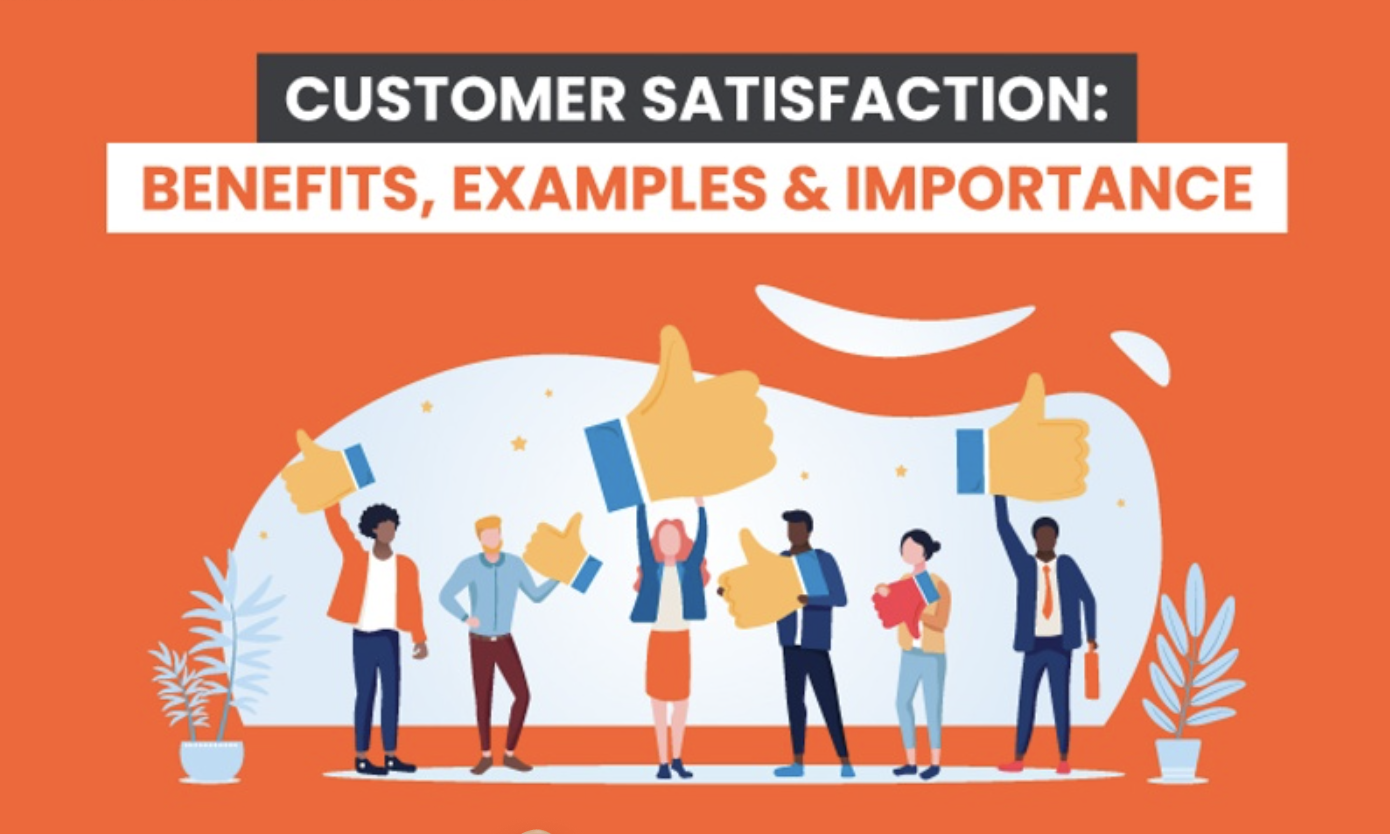
In that same article, Neil Patel argues that companies that have high customer satisfaction achieve higher retention rates and increases in revenue as well. Customer satisfaction boosts loyalty, inspires positive word of mouth, and drives sales.
And self-service and personalization make it infinitely easier.
According to an article by Hubspot, 73% of customers want the ability to solve product or service issues on their own. As hard as it is on our egos, the bottom line is that customers generally don’t want to talk to salespeople.
A huge benefit of self-service is that it allows people to answer their own questions without having to contact a salesperson or other staff. With the instant gratification of being able to find their answers without a week-long email conversation, self-service makes happy customers the norm.
How Self-Service Can Increase Conversion Rates
One of the many struggles sales reps face in their day-to-day work is converting prospects to paying customers. And while self-service options can drastically improve the satisfaction rates of your company’s existing customers, self-service can also help create positive PR with prospects and leads.
77% of customers say they view brands more positively if they provide self-service options for customers looking for support. Self-service enhances the brand experience and generates more goodwill among your customer base.
Another positive impact of self-service is that self-service technologies allow customers to find information at their own pace. A new research study from Epsilon indicates that 80% of consumers are more likely to make a purchase when brands offer personalized experiences.
Keep in mind, on the flip side, if a self-service option is ineffective, or simply not present, the prospects that attempt to find and use that defective self-service technology are 10% more likely to be disloyal customers. This means that even if you have a self-service experience if do not commit to making it engaging and functional, your company is no better off than without.
Self-service and personalized experiences matter.
Especially today, B2B customers want to have interactive sales experiences and personalized service technologies. And by providing those services and experiences to your customers and prospects, you demonstrate that you and your company are invested and adding value to their lives.
Remember the quote by Jeffrey Gitomer?
“The best salespeople are relationship builders who provide value and help their customers win.”
Utilizing self-service technologies is the selling strategy you need to help you become that kind of salesperson.
Implementing Self-Service Into Your Company
Now that you understand the benefits of self-service options, let's look at how you can implement a successful B2B sales strategy in your organization. The first step is to identify which self-service options would best fit your customers’ needs.
For example, if your target customers are looking for information about products, then an online product FAQ page would be a great way to provide them with the information they need. You should also consider offering self-service options such as automated chatbots or customer forums where customers can get help and advice from other customers.
Now that you understand the positive effects of self-service technologies, let us observe how to launch a successful plan within your business. The initial step is defining which self-service options would satisfy your patrons’ needs. If they are questing knowledge regarding products, then an internet product FAQ page could be a great way to provide them with what they desire.
Moreover, consider affording self-service possibilities such as automated chatbots or customer discussion boards where prospects and potential customers can obtain assistance and advice from other customers.
Once you and your company have identified the self-service option that works best for your customers, developing an effective communication strategy that incorporates your website design, social media, and other promotional materials is important.
Utilizing these self-service options will help your potential customers get the information they need easily and quickly. And as discussed previously, monitoring customer feedback and behaviors around your self-service options ensures that you can continue to improve and optimize customer engagement and their sales experiences.
Offering prospects self-service options can give them a superior customer experience, save you time and money, and free up resources for more important tasks. Self-service can be an effective B2B sales strategy and a major asset in your business model.
Companies that Utilize Self-Service
So, what does great self-service look like in action?
Here are a couple of different companies that are excelling at incorporating self-service into their websites and strategies.
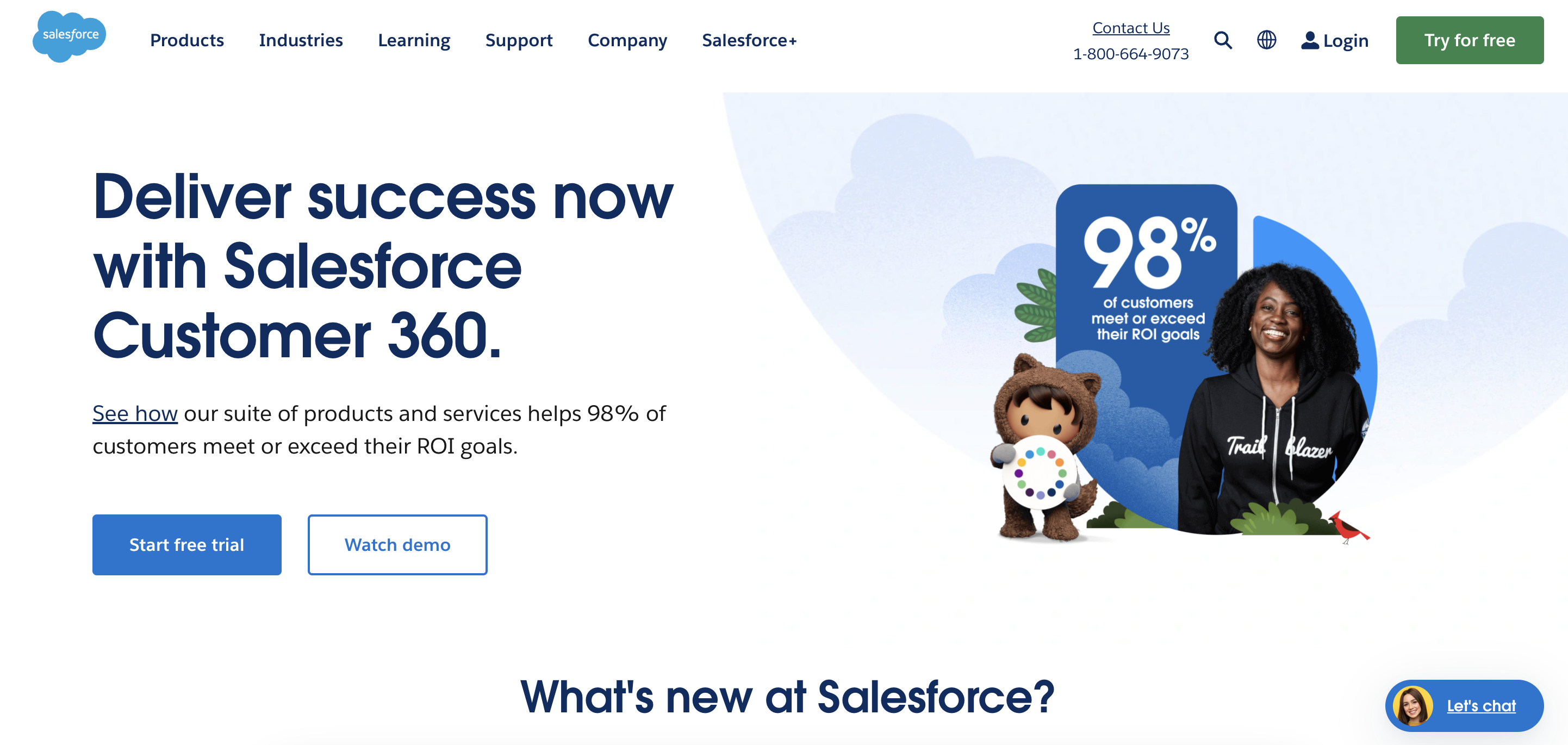
Salesforce, the pioneer of CRM, does an exceptional job of incorporating personalization and self-service into its platforms and portals. Firstly, by creating accounts that their customers can log into whenever they want to use Salesforce’s tools and AI-powered chatbots that send specific messages depending on the customer, personalized experience is an absolute given. And secondly, with multiple tutorials, courses, and resources at the disposal of the customers, Salesforce has effectively covered self-service as well. Salesforce has also become an incredibly beneficial enterprise software because of the real-time insights into sales performance that it provides.
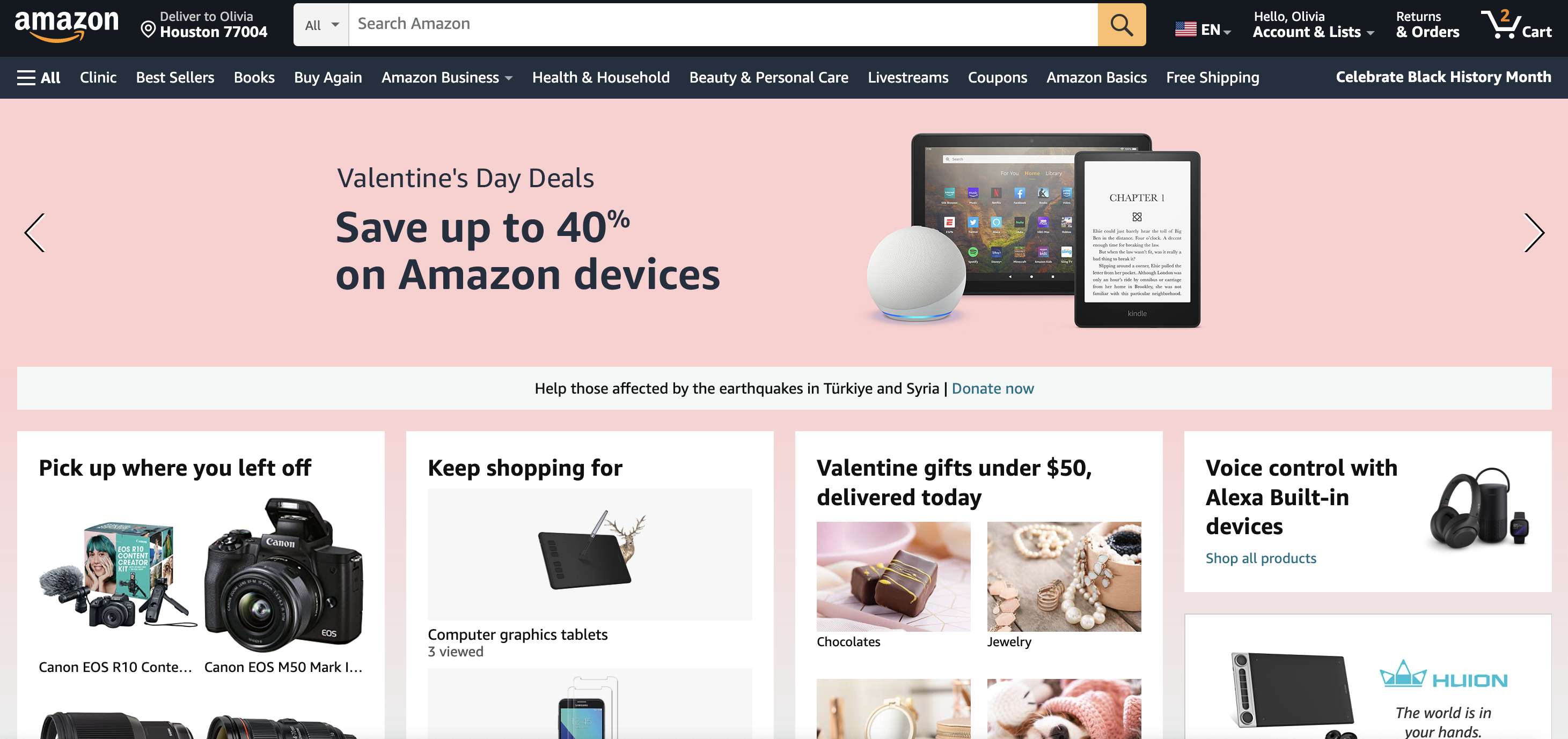
Amazon has become a monopoly in the world of e-commerce. Part of the reason is because of how seamlessly they incorporate self-service and personalization into their services. Looking at the image above, we can see that Amazon has personalized my homepage by bringing up my recent searches and other products that I might be interested in purchasing. The platform is also extremely user-friendly and for customers who have questions, it is very easy to get a hold of a resource or Amazon representative to answer their questions.
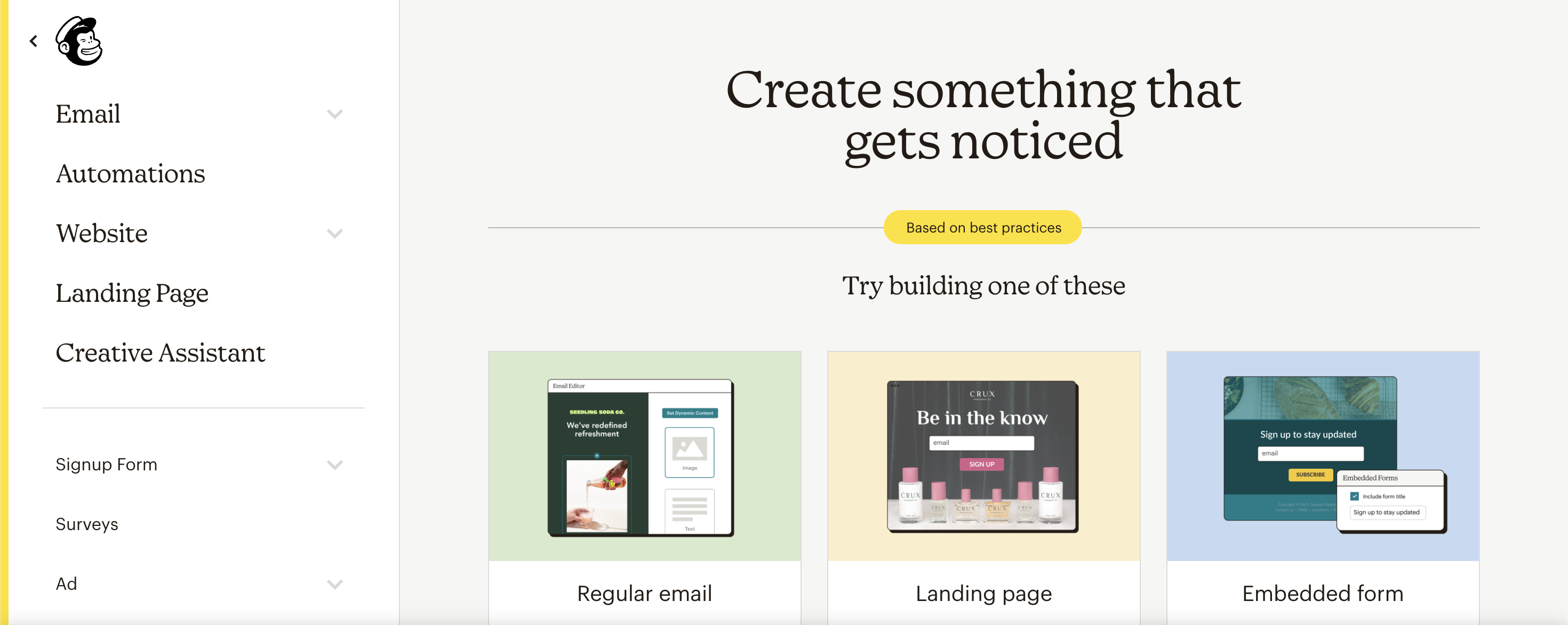
Mailchimp is an extremely user-friendly email marketing platform that is beneficial for users of all skill levels. Mailchimp is also a great example of effective self-service and personalization in action. Similarly to Amazon, Mailchimps’ platform allows for access to incredible features and email automation software with a wide variety of resources to assist users during their onboarding journey.
What do all of these companies have in common? They have effective self-service technologies and personalized experiences that give way to quick solutions, a speedy customer onboarding process, and generally happy customers.
What else do they have in common? They are all extremely successful in their respective industry.
This is not a coincidence.
Key Takeaways
Providing a self-service option for prospects can be an effective selling strategy for salespeople to use to add value to the customer experience. Firstly, this gives customers the autonomy to get answers quickly and easily at any time of day or night, as they do not have to wait for a salesperson's availability.
Secondly, it allows B2B buyers to have complete control over the sales process so they can find out more information at their own pace. The option to self-serve customer onboarding greatly benefits both the SaaS company and the business customers involved.
Finally, this enables salespeople to focus their time on prospects who may have more complex needs that require additional expertise. Self-service options can save both prospects and salespeople valuable time while allowing them to get the most out of their interactions.
Reach out to us today if you are interested in scaling your sales opportunities by incorporating self-service and personalization into your customer’s experiences.
Ready to reinvent your sales process and tools?
One quick call and we'll share our approach - no pressure.
Schedule your demo